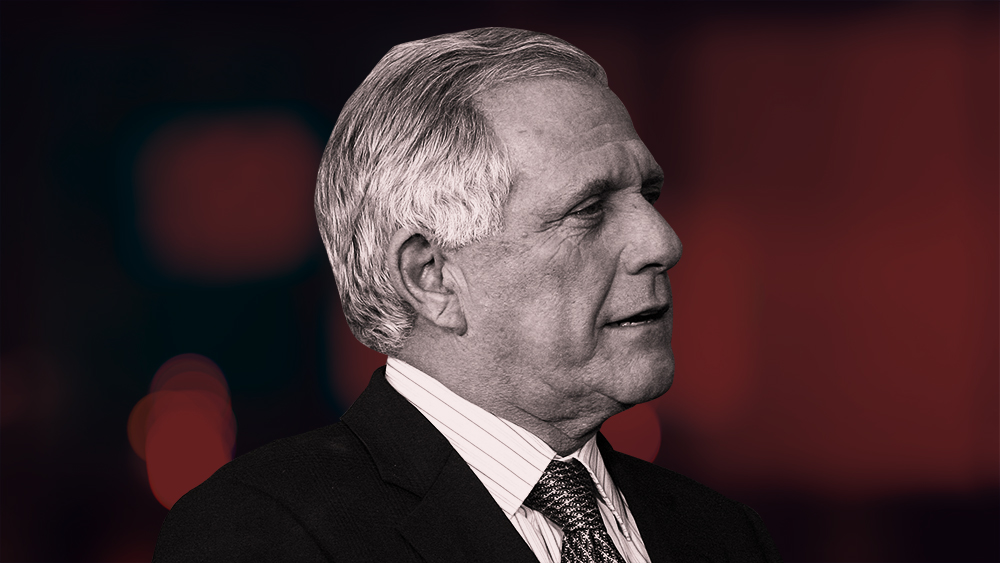Leslie Moonves, CBS, and How Toxic Corporate Cultures Poison the Stories Being Told (Column)
By Caroline Framke
LOS ANGELES (Variety.com) – One of the most infuriating aspects of the many, many stories of ingrained Hollywood abuse that have come to light is how the alleged perpetrators have apparently gotten away with their wrongdoing for decades. From their positions of power, they’ve blocked deserving voices from flourishing to keep rebranding assault as “flirting,” and writing off victims as the “price of doing business.” Each and every tale is yet another piece of the puzzle of all the deeply ingrained patterns of abuse that some of the most dominant members of the entertainment industry have established and protected over decades.
The New Yorker’s report on allegations against CBS CEO Les Moonves is arguably the most significant yet, and not just because Moonves is one of the most influential people in Hollywood, period. In addition to laying out six separate accounts of Moonves’ alleged misconduct, the report details the stark reality that abusive power players have long shaped the way that stories, both real and fictional, are told.
The problem doesn’t, and never could, begin and end with Moonves. A single person’s toxic behavior influences those working for and around him to follow suit — and Moonves has a lot of employees. As CEO of Corp., he doesn’t run the day-to-day of all the company’s subsidiaries — including CBS proper, CBS News, CBS All Access, CBS Television Studios, CBS Interactive, CBS Films, CBS Studios Int’l, CBS Television Distribution, The CW, Showtime and as a bonus, the publishing company Simon & Schuster. But he is still their ultimate arbiter, setting the precedent for what his employees can expect from working there.
So while the allegations are what made initial headlines, the New Yorker report is especially sharp for emphasizing that his alleged behavior encouraged sexual harassment and coercion to run rampant at all levels of the corporation. In particular, the report presents damning evidence that “60 Minutes” can’t be the trusted source of news it purports to be if the show’s most influential men are, in fact, constantly playing coverup for their toxic peers and dismissing their female employees as lesser. How can it be trusted as a hard-hitting news program if it hasn’t applied any investigative rigor to itself?
The problem of trust extends far beyond “60 Minutes.” Several other prominent figures in the CBS Corp. family have been subjected to the #MeToo spotlight. Late last year, Variety reported that CW producer Andrew Kreisberg and “NCIS” producer Brad Kern had been harassing women on their sets for years. (Kreisberg has since been fired; Kern remains a consulting producer on “NCIS: New Orleans.”) And in November, The Washington Post reported multiple allegations against Charlie Rose, who was as close to a CBS institution as there ever was. (Rose has since been fired.)
The point is simply this: People accused of sexual harassment and assault have formed the backbone of police procedurals, teen superhero dramas and some of the country’s (previously) most trusted news programming. How did these men shape the stories they were telling to millions? Which stories haven’t been told at all? Whose voices were silenced or dismissed as unimportant? Who was elevated, and who became collateral damage? What, exactly, have we lost because of powerful egos throwing their weight around?
And it’s not just CBS. From Charlie Rose to Bill O’Reilly, Matt Lauer to Mark Halperin, Brett Ratner to John Lasseter, Louis C.K. to Garrison Keillor, to practically a baseball team’s worth of Vice Media executives, men granted extraordinary platforms have been revealed as opportunists who have used their positions to abuse their subordinates. And together — from behind news desks, in comedy routines, on the radio, in salacious best-sellers and on giant blockbuster screens — they have shaped how the people who listen to them see the world around them.
The implications of this bleak picture are extraordinary — and completely unsurprising. With newsrooms brimming over with chauvinistic behavior, it stands to reason that female political candidates end up spending so much time fighting for equal consideration and against sexist coverage. As TV packed writers rooms with casually cruel men, of course countless female characters have been sacrificed in service of the male ones, or assaulted in the name of “character growth.” And with so many executives viewing the women around them as readily disposable playthings, it’s no wonder that the projects they greenlight tend to do the same.
So, yes: excavating the rampant corruption around us is a painful, confusing, thorny process. But when the stakes are as high as shifting the way our entire culture represents itself on-screen and beyond, it’s worth trying to pull the rot out by its stubborn roots.

